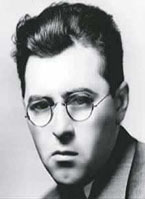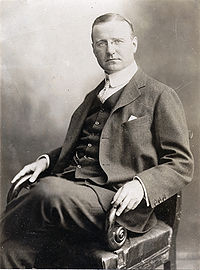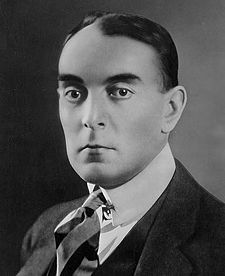
David G. Whiteis
Born: Connecticut
Pen Name: David Whiteis Connection to Illinois: Whiteis lives in Chicago. He moved there in the late 70's. Biography: David Whiteis is an author, freelance writer and educator living in Chicago. He began his journalism career at the Hartford Advocate in 1976. He focused on writing about the Blues after moving to Chicago in the late 70’s. Whiteis contributes to the Chicago Reader, Living Blues, Juke Blues, Down Beat. His articles have also appeared in the Chicago Tribune and special publications such as the Chicago Blues Annual and programs for events like the Chicago Blues Festival.
Awards:
- -- Keeping the Blues Alive Award for Achievement in Journalism, Blues Foundation, 2001
Selected Titles
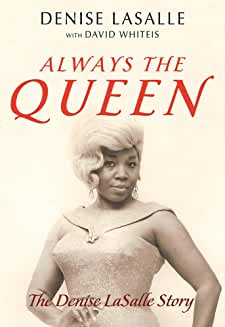 |
Always the queen : ISBN: 0252043073 OCLC: 1122802398 "This is the autobiography of soul and blues singer Denise LaSalle "as told to" the blues scholar David Whiteis. The book documents Ms. LaSalle's move from rural Mississippi to Chicago as a teenager, where she eventually established herself as a successful songwriter and performer in gospel and blues. She also founded several record labels and demonstrated considerable savvy as a businesswoman. In the early 1980s, realizing that her brand of emotionally resonant soul music had lost ground in the marketplace to newer forms - first disco, and then rap/hip-hop - Ms. LaSalle began to write songs and perform in the modern-day blues genre usually referred to as "soul-blues" (a term she takes credit for inventing) or "southern soul." Her songs in this genre conveyed a bold, often provocative message of womanly assertiveness and pride, including explicitly drawn demands for both sexual and financial satisfaction, that both invoked and modernized the classic blueswoman's stance of power and independence, a trope that links her directly to such legendary blues singers as Bessie Smith, Ma Rainey, and Ida Cox. Armed with this new material but still capable of pleasing long-time fans with renditions of her earlier hits, Ms. LaSalle became one of the dominant figures on the "southern soul"/"soul-blues" circuit, which was actually a newly revitalized incarnation of the old "chitlin' circuit," the network of predominantly African-American performance venues that crisscrossed the south and also extended into some northern and western urban strongholds (tracing, more or less, the geographic pattern of the early/mid-20th Century Great Migration). She remains one of the most beloved figures on that circuit, admired by listeners and fellow artists alike for her legacy and her ongoing dedication to her music and fans. LaSalle's story thus complements the overall story of blues and soul music as the cultural expression of a diasporan people who reinvented themselves to adjust to Northern life while retaining many of the cultural, religious, and social traditions with which they had grown up in the South"-- |
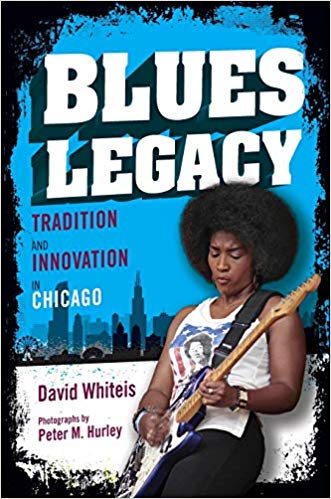 |
Blues legacy : ISBN: 0252084705 OCLC: 1096516294 |
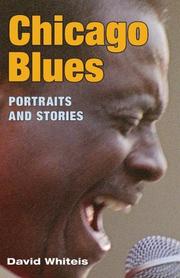 |
Chicago blues : ISBN: 0252073096 OCLC: 61162292 University of Illinois Press, Urbana : ©2006. Explores the history of blues music in Chicago. |
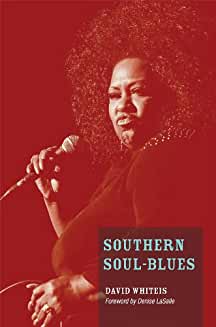 |
Southern soul-blues ISBN: 0252034791 OCLC: 841909759 University of Illinois Press, Urbana : ©2013. Earthy and exuberant music with deep Southern roots. Attracting passionate fans primarily among African American listeners in the South, southern soul draws on such diverse influences as the blues, 1960s-era deep soul, contemporary R & B, neosoul, rap, hip-hop, and gospel. Aggressively danceable, lyrically evocative, and fervidly emotional, southern soul songs often portray unabashedly carnal themes, and audiences delight in the performer-audience interaction and communal solidarity at live performances. Examining the history and development of southern soul from its modern roots in the 1960s and 1970s, David Whiteis highlights some of southern soul's most popular and important entertainers and provides first-hand accounts from the clubs, show lounges, festivals, and other local venues where these performers work. Profiles of veteran artists such as Denise LaSalle, the late J. Blackfoot, Latimore, and Bobby Rush--as well as contemporary artists T.K. Soul, Ms. Jody, Sweet Angel, Willie Clayton, and Sir Charles Jones--touch on issues of faith and sensuality, artistic identity and stereotyping, trickster antics, and future directions of the genre. These revealing discussions, drawing on extensive new interviews, also acknowledge the challenges of striving for mainstream popularity while still retaining the cultural and regional identity of the music and maintaining artistic ownership and control in the age of digital dissemination. -- Publisher's website. |


